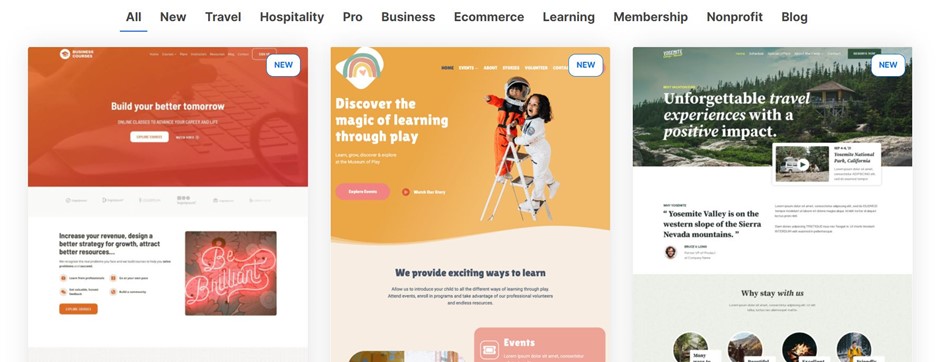1 Why you should start a blog?
Starting a blog is a great way to share your thoughts and ideas with the world. It can also be a great way to connect with like-minded people and start a conversation.
Whether you’re passionate about fashion, food, or politics, starting a blog is a great way to start sharing your voice. Blogging can also be a great way to make money.
If you build up a large enough following, you can start selling ads or partnering with brands. And if you’re really successful, you can even start writing books or giving lectures.
So, if you’ve ever thought about starting a blog, now is a perfect time. Just choose your topic, start writing, and see where it takes you.
2 What are the benefits of blogging?
The benefits of blogging are many and varied.
One of the most important is that it can help you to market your business effectively. A well-written blog can attract new customers and clients, as well as search engine traffic. In addition, a blog can be a great way to build relationships with potential and current customers.
By providing valuable content, you can establish yourself as an expert in your field and develop trust with your readers.
Additionally, blogging is a great way to connect with like-minded individuals and create a community around your business. And best of all, it’s free!
Whether you’re just getting started or you’ve been in business for years, there’s no excuse not to start a blog today.
3 What do you need to start a blog?
Assuming you would like to blog on WordPress, you would need:
-An idea for a blog post
-To sign up for WordPress
-A computer
-Time
First, you need an idea of what to write about in your blog post. This can be literally anything that interests you or think would interest others. For example, some people blog about their day-to-day lives, while others blog about the latest news in the entertainment industry.
Then, go to www.wordpress.com and sign up for an account. The sign-up process is pretty straightforward – enter your email, create a username and password, and choose a blog address (or “URL”).
After you have completed these steps, you are ready to start writing your blog post! Log in to your WordPress account, click on the “Posts” tab on the left sidebar, and then click “Add New.” From there, simply start typing away!
Remember that blogging is a commitment – try to post regularly, at least once a week if possible. And don’t forget to proofread your posts before you hit “Publish”!
With these tips in mind, anyone can start a successful blog.
4 How to start a blog?
So now you have decided to start a blog?
Luckily, it’s easier than ever to get started. All you need is a topic you’re passionate about and a willingness to share your expertise with the world. Once you’ve got that, follow these simple steps:
1. Choose a blog platform
There are many different blog platforms to choose from, so take some time to explore your options. If you’re not sure where to start, WordPress and Blogger are two of the most popular platforms.
2. Set up your blog
Once you’ve chosen a platform, it’s time to set up your blog. This usually just involves registering for an account and picking a web hosting plan.
3. Write your first blog post
Now it’s time to start writing! Remember to focus on quality over quantity – your readers will appreciate well-written, thoughtful content over something that’s hastily thrown together.
4. Promote your blog
The final step is to let people know about your blog. Share your posts on social media, and consider guest blogging or taking out ads to reach a wider audience.
With these steps in mind, you’re well on your way to starting a successful blog.
5 How to choose a blogging platform?
If you’re interested in starting a blog, one of the first decisions you’ll need to make is which blogging platform to use. There are a number of different options available, and it can be tricky to know which one is right for you.
One important factor to consider is whether you want a free blog or a paid WordPress site. If cost is a major concern, there are a number of free blogging platforms that you can use, such as Blogger and WordPress.com. However, if you’re serious about blogging and are willing to invest a bit of money, then a self-hosted WordPress site is probably the better option.
Another factor to consider is the level of control and flexibility that you need. If you’re comfortable with HTML and CSS, then you may prefer a platform that gives you more control over the look and feel of your site. However, if you’re not particularly tech-savvy, then you may prefer a platform that is simpler to use and doesn’t require much technical knowledge.
Ultimately, the best way to choose a blogging platform is to experiment with different options and see which one works best for you.
6 Do WordPress themes affect your blogging?

WordPress themes can have a major impact on your blog. Free themes are often generic and may not include all the features you need or want. Paid themes usually have more customization options, but they can be expensive. You should also consider whether you want a theme that is specific to your niche or one that is more general. Blogging about fashion will require a different theme than blogging about food.
Ultimately, the theme you choose should be based on your needs and preferences. With so many options available, there is sure to be a WordPress theme that is perfect for your blog.
7 Role of the custom domain name and web hosting for blogging
A custom domain name is a must for any serious blogger. Not only does it make your blog look more professional, but it also allows you to take advantage of certain hosting features.
For example, most hosting providers will give you the option to use your custom domain name with their email services. This can be a great way to promote your blog and stay in touch with your readers.
In addition, a custom domain name can make it easier to share your blog on social media platforms. With a hosting company, you can also take advantage of additional features such as website security and website templates. All of these factors can play a role in making your blog more successful.
8 How to choose a custom domain name?
If you’re like most people, you probably have a custom domain name. A custom domain name is a name that you choose for yourself, typically with the help of a Domain Name Registrar. It’s important to choose a custom domain name that’s relevant to your business or personal brand, easy to remember, and unique.
There are a few things to keep in mind when choosing a custom domain name:
– Make sure the custom domain name is relevant to your business or personal brand. The custom domain name should be reflective of what you do or who you are.
– Choose a custom domain name that’s easy to remember. The custom domain name should be something that people can easily recall when they see it. Avoid using numbers or hyphens in your custom domain name.
– Choose a custom domain name that’s unique. It’s important to choose a custom domain name that’s not already being used by someone else. You can check the availability of custom domain names with a Domain Name Registrar.
By following these tips, you can choose a custom domain name that’s perfect for your business or personal brand.
9 How to write your first new blog post?
So you’ve decided to start writing blog posts. Congratulations!
This is a great way to share your thoughts, your writing, and your voice with the world. But where do you start?
Writing your first blog post can be a daunting task, but there are a few simple steps you can follow to make the process easier.
First, decide what you want to write about. This may seem like the hardest part, but it’s actually the most important. Once you have a topic, it will be much easier to move on to the next steps.
Next, craft a catchy headline that will entice readers to click on your post. Remember, your headline is what will appear in search results and on social media, so make sure it’s attention-grabbing and accurately reflects the content of your post.
Once you have a headline, it’s time to start writing! Keep your readers engaged by writing in a clear, concise style. Use short paragraphs and break up longer sections with headlines or images. Most importantly, don’t forget to proofread your work before hitting publish.
By following these simple steps, you can write an effective blog post that will reach your target audience and help grow your blog.
10 How to come up with blog content ideas?
If you’re feeling stuck on what to write for your next blog post, there are a few tricks you can use to come up with ideas.
First, try thinking of a catchy title that sums up what you want to say. This can be something witty or clever, or just a simple description of the topic. Once you have a title, it will be easier to start writing the actual blog post.
Another approach is to think about what your target audience might be interested in reading. What questions do they have that you could answer? What problems do they need help solving?
You can also look at other blog posts in your niche for inspiration. What topics have been successful in the past? By brainstorming ideas and looking at other blogs for inspiration, you should be able to come up with plenty of blog content ideas in no time!
11 How to do keyword research for your new blog?
Unless you’ve been living under a rock for the past decade, you’ve probably heard of keyword research. For the uninitiated, keyword research is the process of finding keywords that people are searching for online, and then incorporating those keywords into your content in order to rank higher in search engine results pages (SERPs).
If you’re starting a new blog, keyword research is essential if you want your blog to be successful. Luckily, there are a number of tools and resources that you can use to do keyword research with just a few clicks. Here’s a quick rundown of how to do keyword research for your new blog.
First, identify a general topic that you want your blog to be about. For example, let’s say you want to start a blog about fashion. Once you’ve got your topic, it’s time to start brainstorming some specific keyword ideas. To do this, you can use a keyword research tool like Google Keyword Planner or KWFinder. Simply enter your topic into the tool and it will generate a list of related keywords.
When you’re brainstorming keyword ideas, think about different ways that people might search for your topic. For example, someone might search for “how to dress for an interview” or “what to wear on a first date.” Once you have a list of potential keywords, it’s time to start incorporating them into your content.
Remember to use your keywords throughout your blog posts, but don’t go overboard – too much keyword stuffing can actually hurt your ranking. Use keywords thoughtfully and sparingly, and your blog will be well on its way to success.
12 Track record on Google analytics and google search console
If you’re starting a new blog, one of the first things you’ll need to do is set up a Google Analytics account. This will allow you to track your traffic and understand how people are finding your site. Once you’ve done that, you’ll also want to set up a Google Search Console account.
This will give you insights into how your site is performing in Google search results. by monitoring your track record on these two platforms, you’ll be able to fine-tune your SEO strategy and ensure that your site is reaching its full potential.
13 How to promote your blog?
There are many ways to promote your blog. You can use social media, pay-per-click advertising, search engine optimization, and more.
1. Use social media
Social media is a great way to get exposure for your blog. You can post links to your latest blog posts on Facebook, Twitter, and other social networking sites. You can also join online communities related to your blog topic and participate in discussions.
2. Use pay-per-click advertising
Pay-per-click advertising is a form of online advertising where you pay a fee every time someone clicks on your ad. This can be an effective way to get traffic to your blog, but it can also be expensive.
3. Use search engine optimization
Search engine optimization (SEO) is the process of making your blog more visible in search engine results pages. This can be done by using keywords and other strategies to improve your blog’s ranking in search results.
4. Use other marketing strategies
There are many other marketing strategies you can use to promote your blog. You can submit your blog to online directories, participate in online forums, and more.
5. Be patient
It takes time and effort to build an audience for your blog. Don’t expect overnight success. Keep promoting your blog and eventually, you will see results.
14 Promoting your WordPress blog with plugins
There are many ways to promote your blog. You can use social media, pay-per-click advertising, search engine optimization, and more.
1. Use social media
Social media is a great way to get exposure for your blog. You can post links to your latest blog posts on Facebook, Twitter, and other social networking sites. You can also join online communities related to your blog topic and participate in discussions.
2. Use pay-per-click advertising
Pay-per-click advertising is a form of online advertising where you pay a fee every time someone clicks on your ad. This can be an effective way to get traffic to your blog, but it can also be expensive.
3. Use search engine optimization
Search engine optimization (SEO) is the process of making your blog more visible in search engine results pages. This can be done by using keywords and other strategies to improve your blog’s ranking in search results.
4. Use other marketing strategies
There are many other marketing strategies you can use to promote your blog. You can submit your blog to online directories, participate in online forums, and more.
5. Be patient
It takes time and effort to build an audience for your blog. Don’t expect overnight success. Keep promoting your blog and eventually, you will see results.
15 Promoting your WordPress blog with plugins
One way to promote your WordPress blog is to use WordPress plugins.
Plugins are a great way to extend the functionality of your blog and add new features.
There are plugins available for almost anything, from social media integration to SEO optimization.
By installing a few key plugins, you can make your blog more visible and attractive to potential readers.
Another way to promote your WordPress blog is to participate in online communities related to your blog’s topic. By becoming an active member of these communities, you can gain exposure for your blog and build relationships with other members. In addition, you can also use online directories to list your blog and help attract new readers.
By taking advantage of these promotional strategies, you can give your WordPress blog the boost it needs to reach a wider audience.
16 How to make money from your blog?
There are a few ways that you can make money from your blog. One way is to sell advertising space on your blog. You can also sell products or services through your blog. Finally, you can earn income through affiliate marketing programs.
Let’s take a closer look at each of these methods:
Selling Advertising Space
One way to make money from your blog is to sell advertising space. You can do this by contacting businesses and offering to sell them advertising space on your blog. This can be a great way to earn income, but it’s important to make sure that the ads you sell are relevant to your blog’s content. Otherwise, your readers may get annoyed and stop reading your blog.
Selling Products or Services
Another way to make money from your blog is to sell products or services through your blog. If you have something to sell, you can set up a shop on your blog or include links to products and services in your blog posts. You can also offer services, such as consulting or coaching, through your blog.
Affiliate Marketing Programs
Finally, you can make money from your blog through affiliate marketing programs. With affiliate marketing, you promote products or services on your blog and earn a commission on each sale that you generate. This can be a great way to earn income, but it’s important to choose products and services that are relevant to your blog’s content. Otherwise, your readers may not be interested in what you’re promoting.
Making money from your blog can be a great way to earn a living or supplement your income. However, it’s important to remember that it takes time and effort to generate income from your blog. If you’re patient and persistent, you can start making money blogging very easily.
17 Common mistakes new bloggers make
It’s no secret that bloggers have to work hard to build an audience.
But even the most dedicated blogger can make costly mistakes, especially when first starting out. One common mistake is using a free WordPress theme instead of investing in a custom design. While free themes can save money upfront, they often result in a blog that looks generic and unprofessional.
Additionally, many free themes are poorly coded and can cause security vulnerabilities. Another mistake new bloggers make is failing to set up their own domain name and hosting plan. Instead, they use a free service like Blogger or WordPress.com.
While this may seem like an easy way to get started, it severely limits the blogger’s control over their content and branding. In the long run, it’s far better to invest in your own blog from the start. By taking the time to set up your blog correctly, you’ll be well on your way to success.
We are listing the mistakes usually observed in new bloggers, so you can avoid them for your own blog.
1. Not being consistent
One of the most common mistakes new bloggers make is not posting consistently. When you first start blogging, it’s easy to be excited and post frequently. But as time goes on, it’s easy to let your blog fall by the wayside. If you want to be successful, you need to be consistent with your posting. That means posting regularly, even if it’s just once a week.
2. Not promoting your blog
Another mistake new bloggers make is not promoting their blog enough. Just because you build it, doesn’t mean they will come. You need to let people know about your blog and share it with your social networks. There are a number of ways to promote your blogs, such as through social media, guest blogging, and forums.
3. Not interacting with other bloggers
Another mistake that new bloggers make is not interacting with other bloggers. One of the great things about blogging is the community. There are a number of ways to interact with other bloggers, such as commenting on their blogs, social media, and forums. By interacting with other bloggers, you can build relationships and learn from each other.
4. Not having a focus
Many new bloggers make the mistake of not having a focus for their blog. When you’re first starting out, it’s easy to try to blog about everything under the sun. But that’s not really effective. It’s better to focus your blog on a specific topic or niche. That way, you can build up a following of people who are interested in what you have to say.
5. Not being patient
Finally, many new bloggers make the mistake of not being patient. Blogging takes time and it takes a while to build up an audience. If you’re not patient, you’ll likely get discouraged and give up.
18 Tips for success as a new blogger

Starting a blog can be a great way to share your thoughts and ideas with the world. But if you’re new to the blogosphere, it can be tricky to know where to start. Here are a few tips for getting your blog up and running:
1. Install WordPress
This popular blogging platform is free and easy to use, making it a great option for first-time bloggers.
2. Brainstorm blog post ideas
What do you want to write about? Make a list of potential topics to get started.
3. Get a free domain name
Don’t want to use WordPress? You can still get a free domain name through many web and blog hosting providers.
Following these simple tips, you’ll be well on your way to becoming a successful blogger!
4. Find your niche
When you first start blogging, it can be tempting to try to write about everything and anything. But unless you have a really unique perspective or voice, this is likely to result in blog posts that are all over the place – and that won’t be very appealing to readers.
So instead, take some time to figure out what it is that you’re really passionate about. What are the topics that you can talk about for hours on end? Once you’ve figured out your niche, make sure to blog about those topics regularly.
5. Be original
There are already a lot of blogs out there – so if you want yours to stand out, you need to make sure that your content is original. This doesn’t mean that you have to come up with brand new ideas all the time – but it does mean that you should put your own spin on things.
One easy way to be original is to share your personal experiences related to your niche. If you’re a parent, for example, you could write about the unique challenges and joys that come with parenting.
6. Write well
If you want people to keep reading your blog, you need to make sure that your posts are well-written. This means using proper grammar and spelling, as well as writing in a clear, concise, and easy-to-read style.
If you’re not confident in your writing skills, it may be worth taking a class or two – or at least reading some books on writing – before you start blogging.
7. Use visuals
People are visual creatures, so posts that include images, infographics, and videos are more likely to grab – and hold – people’s attention. If you’re not particularly visual, you can hire a freelance designer to help you create engaging visuals for your blog posts.
Final Words
Blogging can be a great way to share your thoughts, build an audience around a topic you’re passionate about, and drive traffic back to your own blog and website. If you’re thinking of starting a blog or are just getting started, we have all the resources you need.
Explore our guides on choosing a blogging platform, coming up with content ideas, promoting your blog, and making money from your blog. And if you still have questions after reading these guides, don’t hesitate to reach out to us for help. We love helping new bloggers succeed!









